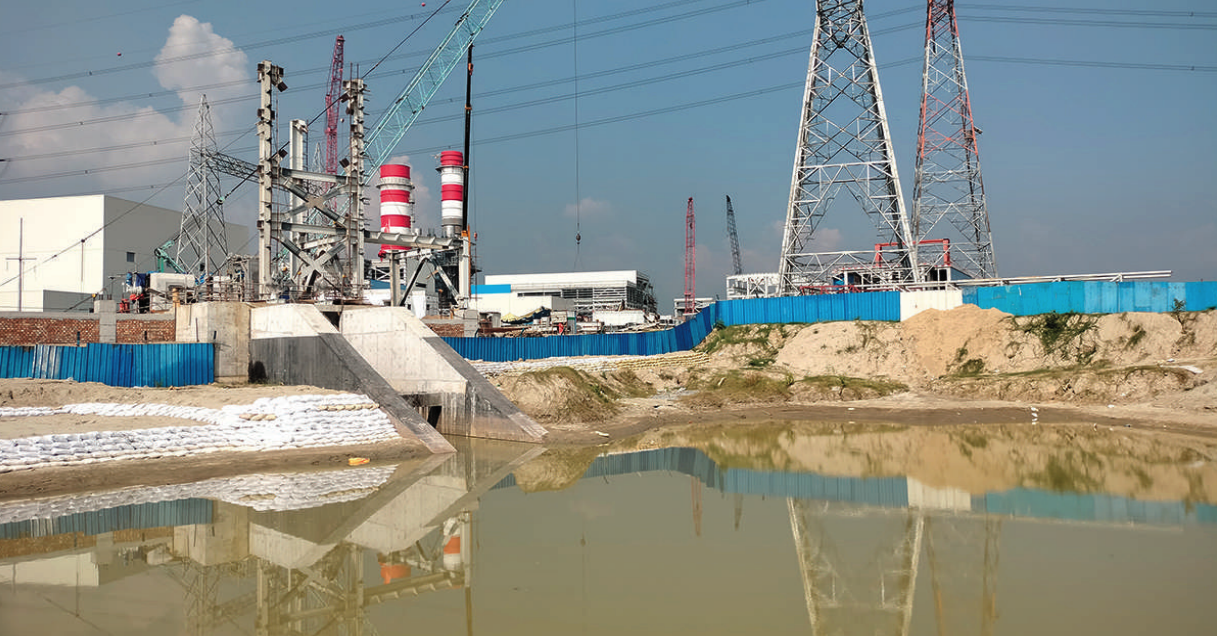- 14.12.2022
- Ecological justice
- Array
A new report, Unique Meghnaghat LNG Power Plant: Building on Fabricated Causes and Draining Bangladesh’s Economy, raises significant concerns about a liquefied natural gas (LNG) power plant under construction in Bangladesh, which is riddled in controversy.
The report, published by the Bangladesh Working Group on External Debt (BWGED) in association with CLEAN (Coastal Livelihoods Environmental Action Network), NGO Forum on ADB and Recourse, calls on the Asian Infrastructure Investment Bank (AIIB) to cancel plans to invest in the plant.
Controversially, AIIB has labelled this greenfield fossil fuel power plant as aligned with the Paris Agreement on climate change. It is the first time AIIB is using this label for a project, in the run up to its July 2023 target for all its operations to be Paris aligned, but it has not yet disclosed or consulted on its methodology. Moreover, according to evidence presented in the report, an approval would run counter to the bank’s newly updated energy strategy, which forbids investment in gas power plants if they risk leading to carbon lock in or stranded assets.
The project, scheduled for approval in December 2022 through a fast tracking process, also risks being funded through a financial intermediary (FI), the Infrastructure Development Co. Ltd (IDCOL), which AIIB has already invested in.
The reports outlines a number of arguments for why the project should not be funded, including:
- The project is not needed as Bangladesh is experiencing a severe level of overcapacity (34%) and the ratio is increasing as new coal power plants are going to start operation by the end of the year.
- Given the lack of fuel available to supply the project, it’s set to become a stranded asset and a major financial burden.
- The project relies on the most expensive source of energy, LNG, which in no way can be claimed to be efficient, nor part of a low-carbon transition. At the same time, solar is currently the cheapest source of energy in the country.
- Based on the consumption of LNG, if it were to become operational, this power plant can be expected to emit a minimum of 2-3 million tonnes of CO2e annually and 47-66 million tonnes in its lifetime, imposing carbon lock-in rather than supporting a transition.
- The project undermines the Mujib Climate Prosperity Plan (MCPP), Bangladesh’s national plan to reach 100% RE by 2050.
- Local landowners were compelled to leave their land without being compensated at market rates, including evidence of retaliation.
Read the full report here.

